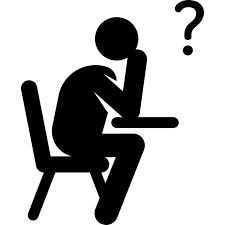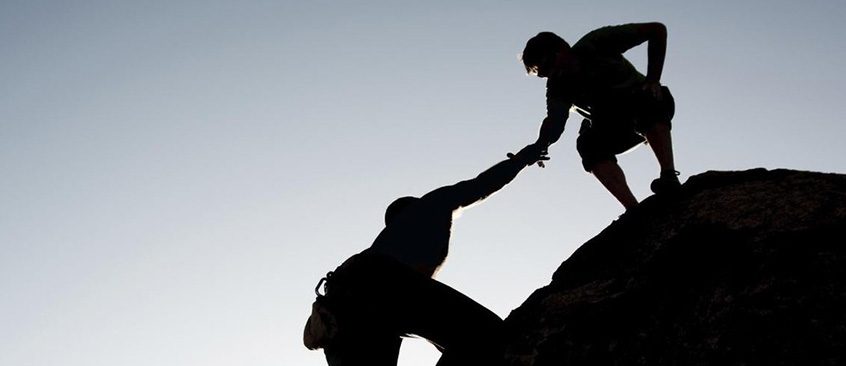Chances are that at some point in your career you have had doubt about what you’re doing or how you’re doing it.
We all experience doubt somewhere along the line in our career(s), and in our life.
No matter what shape or amount doubt shows up, the result can be real.
- Job performance can decrease.
- Job confidence can suffer.
- Decision making can be affected.
- Interaction with co-workers can be strained.
- Work energy can be decreased
How do we work through doubt and use it as an experience that moves us forward?
Working through the following three steps can help assure that if and when doubt appears in our professional or personal life, it can be handled with confidence and growth.
We live in a world where perfection is viewed as the ultimate nirvana. Doubt makes us feel “less than”. How do we tackle doubt with this prevailing world view?
- The perfect body
- The perfect career
- The perfect house
- The perfect you
- The perfect life
The First Step: Recognition
Recognizing doubt happens in three steps: understanding the origin, observing it objectively, and changing our perception.
Seeing the Origin of doubt is paramount to recognizing it. Doubt does not just appear out of thin air. It grows over time and builds on the past. It is an accumulation of opinions that we form about ourselves through what we think are “mistakes” we have made earlier in life.
Our Observation of the effects of doubt on us is key to stopping it .We must observe our life as though we are a character in a movie. Observation does not require that a conclusion be made or an action be taken. We just have see that doubt is there.
Perception of doubt can be the most difficult to handle. Our perception that doubt is bad is tough to break. Seeing that doubt has a positive side comes from detaching the emotion around it. To do this we must stop taking doubt personally. When we internalize the doubt, it begins to eat away at us. Perceiving doubt outside of ourselves allows us to look at it more clearly.
The Second Step: Ownership
Ownership of doubt is a personal process that allows us to learn and grow. There are three essential tools to own doubt.
Self-awareness is one of the best tools to own doubt. Through self-awareness, we can take an introspective look at ourselves – separate from our environment. With this view, we gain the chance to be honest. Ownership of doubt can only occur if we are honest with ourselves.
Self-compassion is the second tool to own doubt. It gives us the space to go through this process with acceptance and without judgment. Creating space so that our doubtful feelings can be filtered lets us learn from this experience – and is empowering. Self-compassion helps us get past the emotional sting of doubt.
Trust is the last and most important tool. Ownership of doubt is only temporary. Doubt will appear in different forms throughout our professional and personal lives. We need trust ourselves to know that we have the ability to deal with the doubt when it arises.
The Third Step: Change
Change does not mean that we rid ourselves of doubt forever: it means that when doubt returns, we have taken actions to move through it and keep on track. Self-Confidence, Community and Focus are practices to keep doubt at bay.
Self-confidence means knowing that we are capable of reaching into our toolbox to create the change we need. It means we have the courage to take an action to learn and grow. We should not confuse self-confidence with arrogance. Any professional coach with tell us that self-confidence builds a career and arrogance breaks it.
“Flow your Mojo”
Believe it or not science plays a role in recovering from doubt and keeping your Mojo running high! Don’t believe me? Check out: Failure and Self-Confidence: 4 Ways to Protect Your Mojo. In this blog, Robert Accomondo, Esq does a great job explaining how taking small actions can help change our body chemistry and support feeling great.
Community is the second practice of Change. As we know, and science shows, humans are social beings. It is in our nature to be social and to seek others’ help. Sometimes we help others to change so that we can teach ourselves that change is possible. When we help, we teach ourselves as well as others.
In a recent episode of the television show Blue Bloods, “Tall of Two Cities”, the final scene illustrates the importance of sharing during a family dinner discussion. Having support from like-minded people is priceless. Thinking that we have nothing to learn is arrogance.
Focus is the practice that sustains change. Change requires constant attention to our experiences so that we can see and act on-purpose when doubt comes back. Our focus can wonder easily – so this practice will take some work!
Doubt will come and go; how we choose to handle it is up to us. Recognize, Own and Change.
What we learn and how we grow from our personal and professional doubt is what makes us successful.
There are organizations such as Conscious Pioneer that are dedicated to teaching these tools and many other steps for professional and personal growth. If you want some help let them know.




